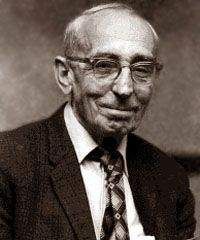Пользователь - o 3b3e7475144cf77c
Amsterdam in a few hours. They could step into their car in the morning and be in Bienvenu by
nightfall. "Really, it'll be about the same as commuting," said Irma.
What astonished him was the zest with which she set to work, and the speed with which she put
the job through. She was the daughter of J. Paramount Barnes, and all her life she had been used
to hearing decisions made and orders given. As soon as Lanny gave his consent she seated herself
at the telephone and put in a call for Jerry Pendleton in Cannes. "How's business?" she asked,
and when the familial cheery voice informed her that it was dead and buried, she asked if he
would like to have a job. He answered that he would jump for it, and she said: "Jump for the
night express, and don't miss your hold."
"But darling!" objected Lanny. "He doesn't know anything about running a palace!"
"He's honest, he's lived in France for fifteen years, and employed some help. It won't take
him long to learn the ropes."
When the red-headed ex-lieutenant from Kansas arrived, she put it up to him. He would
become steward, or perhaps Controleur-General, like Herr Meissner in Stubendorf. "Put on lots
of side," she advised, "and be taken at your own valuation." He would engage a first-class major
domo and a butler who would know what was done and what wasn't. He would be paid enough
so that he could have his own car, and run down to see his family now and then.
Jerry Pendleton had once undertaken to tutor Lanny Budd without any preparation, and now
he was taking another such chance. No time even to read a book on the duties of a
Controleur-General! Go right to work; for the "season" was soon to begin, and Irma wanted
what she wanted when she wanted it. The elaborate inventory of the contents of the palace was
made and checked and signed on every page; the lease was signed, the money paid, and the keys
delivered. Emily's butler had a brother who was also in the profession, and knew everything there
was to know about Paris society. Also he knew servants, enough for an emergency staff, and
they came and took off the dust-covers and got things ready with American speed.
Irma and her prince consort and her Controleur-General moved into their new home, and it
was but a few hours before the newspapers had got word of it, and the doorbell was ringing and
the flashlight bulbs of the photographers exploding. Lanny saw that his wife was once more
getting her money's worth; they were back in cafe society, with the spotlight centered upon
them. Paris was going to have a new hostess, a famous one. The marble steps of the palace were
worn by the feet of chauffeurs and lackeys leaving calling cards with distinguished names on
them, and the side entrance bell was ringing to announce the presence of bijoutiers and
couturiers and marchands de modes.
Irma said: "Your mother must come and help us." So Lanny wrote at once, and that old war-
mare said "Ha, ha!" and scented the battle afar off. It would have been a mortal affront to
invite one mother-in-law and not the other, so Irma sent a cablegram to Shore Acres, and that
older and more experienced charger dropped all her plans and took the first steamer. Even
Emily came to town for a few days, bringing her calling lists with the secret symbols. Feathers
sat by her side with a stenographer's notebook, collecting pearls of information which dropped
from the lips of the most esteemed of Franco-American hostesses.
In short, Lanny Budd found himself in the midst of a social whirlwind; and it would have been
cruelly unkind of him not to like it. Once more the ladies were in charge of his life, and what they
considered proper was what he did. He listened to their talk and he met the people they
brought for him to meet; if he wanted to play the piano it had to be done at odd moments
between social engagements; while, as for sitting down in a splendid library and burying
himself in a book—well, it was just too selfish, too solitary, too inconsiderate of all those
persons who wanted to pay their attentions to the lessee of so much magnificence.
IX
The election results had given a tremendous jolt to the conservative elements in France. The
party of Jesse Blackless had gained only two seats, but the party of Leon Blum had gained
seventeen, while the "Radicals" had gained forty-eight. To be sure that word didn't mean what
it meant in the United States; it was the party of the peasants and the small business men, but
it was expected to combine with the Socialists, and France would have a government of the left,
badly tainted with pacifism, and likely to make dangerous concessions to the Germans. The
groups which had been governing France, the representatives of big industry and finance
capital, popularly known as the mur d'argent, the "wall of money," were in a state of great
alarm.
One of Lanny's duties in Paris was to keep in touch with his exfamily, the de Bruynes. Having
now a suitable home of his own, he invited them to dinner and they came, father, two sons,
and the young wife of Denis fils. Irma hadn't met them before, but had heard a lot about
them, and felt herself being fascinatingly French when she welcomed the family of her
husband's former mistress. They, for their part, appeared to take it as a matter of course,
which made it still more French. They were people of high culture and agreeable manners, so
Irma was pleased to assist in carrying out the death-bed promises which Lanny had made to
the woman who had done so much to prepare him to be a good and satisfactory husband.
They talked about politics and the state of the world. That was what this splendid home was
for; so that Lanny wouldn't have to meet his friends in crowded cafes, where they were jostled
and could hardly hear one another's voices, but might sit in comfort and express themselves
with leisure and dignity. It was Irma's hope that the things said would take on something of
the tone of the surroundings; and certainly this appeared to be true with the de Bruynes, who
were Nationalists, all four of them, and in a state of great concern as to the trend of the
country and its position in the world.
Said the proprietor of a great fleet of taxicabs, speaking with some hesitation to a hostess
from overseas: "I am afraid that the people of your country do not have a clear realization of
the position in which they have placed my country."
"Do feel at liberty to speak freely, Monsieur," replied Irma, in her most formal French.
"There is a natural barrier which alone can preserve this land from the invasion of
barbarians, and that is the River Rhein. It was our intention to hold and fortify it, but your
President Veelson"— so they called him, ending with their sharp nasal "n"—"your President
Veelson forced us back from that boundary, onto ground which is almost indefensible, no
matter how hard we may try with our Maginot line. We made that concession because of your
President's pledge of a protective agreement against Germany; but your Congress ignored that
agreement, and so today we stand well-nigh defenseless. Now your President Oovay has declared
a moratorium on reparations, so that chapter is at an end—and we have received almost
nothing."
Lanny wanted to say: "You received twenty-five billions of francs under the Dawes plan,
and the products have glutted the world markets." But he had learned in Denis's home that it
was futile to argue with him, and it would be no less so in the palace of the Duc de
Belleaumont, one of Denis's financial associates.
"You do not feel that there is any possibility of trusting the German Republic?" inquired
Irma, trying hard to perfect her political education.
"When one says Germany today, Madame, one means Prussia; and to these people good faith
is a word of mockery. For such men as Thyssen and Hugenberg, and for the Jewish money-
lenders, the name 'Republic' is a form of camouflage. I speak frankly, because it is all in the
family, as it were."
"Assuredly," said the hostess.
"Every concession that we make is met by further demands. We have withdrawn from the
Rheinland, and no longer have any hold upon them, so they smile up their sleeves and go on
with their rearming. They waited, as you have seen, until after our elections, so as not to alarm
us; then, seeing the victory of the left, they overthrow their Catholic Chancellor, and we see a
Cabinet of the Barons, as it is so well named. If there is a less trustworthy man in all Europe
than Franz von Papen, I would not know where to seek him."
Irma perceived that you might invite a French Nationalist to the most magnificent of homes
and serve him the best of dinners, but you would not thereby make him entirely happy.
Practicing her new role of salonniere, she brought the young people into the conversation; but
this succeeded no better, for it turned out that Charlot, the young engineer, had joined the
Croix de Feu, one of the patriotic organizations which did not propose to surrender la patrie
either to the Reds or to the Prussians. The Croix de Feu used the technique of banners and
uniforms and marching and singing as did the Fascists of Italy and the Nazis of Germany; but
Lanny said: "I'm afraid, Charlot, you won't get so far, because you don't make so many
promises to the workers."
"They tell the people falsehoods," said the young Frenchman, haughtily; "but we are men of
honor."
"Ah, yes," sighed his old friend; "but how far does that go in politics?"
"In this corrupt republic, no distance at all; but we have set out to make France a home for
men who mean what they say".
Lanny spoke no more. It made him sad to see his two foster sons —they were supposed to be
something like that—going the road of Fascism; but there was nothing he could do about it. He
knew that their mother had shared these tendencies. They were French patriots, and he
couldn't make them internationalists, or what he called "good Europeans."
X
Having had such a dose of reaction, he had to have one of hope. He said to Irma: "I really
ought to call on Leon Blum, and perhaps take him out to lunch. Would you care to come
along?"
"But Lanny," she exclaimed, "what is this house for?"
"I didn't suppose you'd want to have him here."
"But dear, what kind of home will it be if you can't bring your friends?"
He saw that she was determined to be fair. He guessed that she had talked the matter out
with the wise Emily, and was following the latter's program. If one's husband must have vices, let
him have them at home, where they may be toned down and kept within limits. After all, Leon
Blum was the leader of the second largest political party in France; he was a scholar and a
poet, and had once had a fortune. In the old days, as a young aesthete, he had been a frequenter
of Emily's salon; now he had exchanged Marcel Proust for Karl Marx, but he remained a
gentleman and a brilliant mind. Surely one might invite him to lunch, and even to dinner—if
the company was carefully chosen. Emily herself would come; and Lanny knew from this that
the matter had been discussed.
He took the good the gods had provided him. The Socialist leader sat in the same chair
which Denis de Bruyne had filled, and maybe he felt some evil vibrations, for he spoke very
sadly. In the midst of infinite corruption he was trying to believe in honesty; in the midst of
wholesale cruelty he was trying to believe in kindness. The profit system, the blind competitive
struggle for raw materials and markets, was wrecking civilization. No one nation could change
this by itself; all must help, but someone must begin, and the voice of truth must be heard
everywhere. Leon Blum spoke tirelessly in the Chamber, he wrote daily editorials for Le
Populaire, he traveled here and there, pleading and explaining. He would do it at the luncheon
table of a friend, and then stop and apologize, smiling and saying that politics ruined one's
manners as well as one's character.
He was a tall slender man with the long slim hands of an artist; a thin, sensitive face, an
abundant mustache which made him a joy to the caricaturists of the French press. He had
been through campaigns of incredible bitterness; for to the partisans of the French right it was
adding insult to injury when their foes put up a Jew as their spokesman. It made the whole
movement of the workers a part of the international Jewish conspiracy, and lent venom to all
Fascist attacks upon France. "Perhaps, after all, it is a mistake that I try to serve the cause,"
said the statesman.
He was ill content with the showing which his party had made at the polls. A gain of
seventeen was not enough to save the day. He said that immediate and bold action was
required if Europe was to be spared the horrors of another war. He said that the German
Republic could not survive without generous help from France. He said that the "Cabinet of
the Barons" was a natural answer to the cabinet of the bigot, Poincare, and to that of the cheat,
Laval. Blum was standing for real disarmament of all the nations, including France, and he had
been willing to split his party rather than to yield on that issue. Said Irma, after the luncheon:
"We won't ever invite him and the de Bruynes at the same time!"
XI
From the time her decision was taken to rent the palace, Irma's mind was occupied with the
problem of a party which tout Paris would attend; a sort of housewarming—Lanny said that a
building of that size, made of white marble, would require a lot of cordiality to affect its
temperature. His wife wanted to think of something original. Parties were so much alike. People
ate your food and drank your wine, often too much of it; they danced, or listened to a singer
they had heard many times at the opera and been bored by. Lanny quoted an old saying:
"Gabble, gobble, git."
Irma insisted that tout Paris would expect something streamlined and shiny from America.




